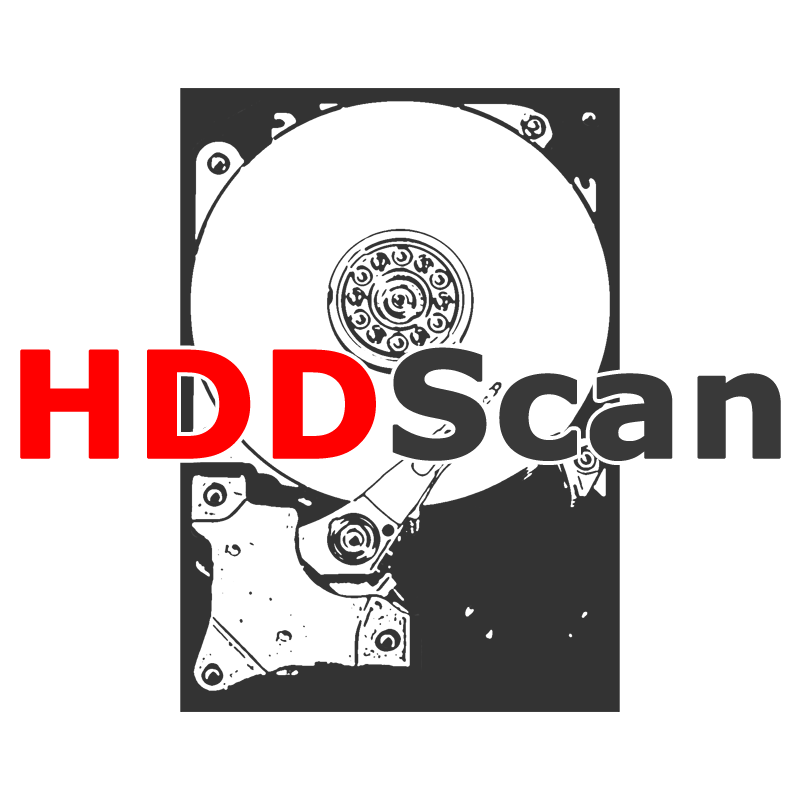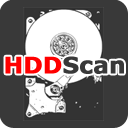Hi guys... apologies if this question has been answered elsewhere I tried looking on the storage part of the forum but couldn't find a discussion that addressed this specifically (there's a good chance there is one and I'm just not seeing it  )
)
I know that the 2 TB Western Digital Red Plus brand hard drive is technically not the first choice for a Windows 8/ Windows 10 (I dual boot) setup even if it's just used to store files (if this makes a difference it will see frequent use , I'll be storing using and modifying all sorts of documents on there , text documents, videos, pdf's, pictures that kind of thing). Amazon mailed it to me by mistake instead of the western digital black performance drive I'd ordered then told me to just go and keep it at no charge so - free 2 TB drive
Here's where I'm scratching my head in puzzlement.... I used the hddscan program to run a check on the drive, ran it three times each time it insists that this brand new hard drive is in trouble due to crc errors (yellow exclamation points, raw hex code result ends in 0024 if that helps any).
Then I ran dashboard (which apparently is the newer version of western digital's old diagnostics utility but it looks like it's a hard drive monitoring program made/developed by Western Digital for it's hard drives) ... ran the Smart test, the short test and the extended test (extended test took four hours to complete so hoping it was a very thorough test ! 😛 ) ... all three dashboard tests insist the hard drive is fine and there are no crc errors.
Then I ran western digital's old fashioned diagnostics test, Data Lifeguard Diagnostics for Windows (western digital says this is now "outdated" and you should use dashboard but I ran it anyways).. only ran the smart version and the short test since I wasn't sure if I should run another 4 hour test on the hard drive and that test also insisted the hard drive doesn't have any crc errors.
I've only been using the hard drive for a few days but so far it's not giving me any problems or issues... I want to say that hddscan is just giving me a false report and everything's fine but.. I dunno, anyone have any thoughts on this?
Here are links to the hard drive diagnostic programs that I downloaded and ran
https://support.wdc.com/downloads.aspx?p=3
https://support.wdc.com/downloads.aspx?lang=en&p=279

 hddscan.com
hddscan.com
and here are some screenshots of what hsscan and dashboard had to say below
Thanks in advance to anyone who reads this and replies
<img src="https://i.vgy.me/d3QmmU.png" alt="d3QmmU.png">
<img src="https://i.vgy.me/O1j6WF.png" alt="O1j6WF.png">
 )
)I know that the 2 TB Western Digital Red Plus brand hard drive is technically not the first choice for a Windows 8/ Windows 10 (I dual boot) setup even if it's just used to store files (if this makes a difference it will see frequent use , I'll be storing using and modifying all sorts of documents on there , text documents, videos, pdf's, pictures that kind of thing). Amazon mailed it to me by mistake instead of the western digital black performance drive I'd ordered then told me to just go and keep it at no charge so - free 2 TB drive

Here's where I'm scratching my head in puzzlement.... I used the hddscan program to run a check on the drive, ran it three times each time it insists that this brand new hard drive is in trouble due to crc errors (yellow exclamation points, raw hex code result ends in 0024 if that helps any).
Then I ran dashboard (which apparently is the newer version of western digital's old diagnostics utility but it looks like it's a hard drive monitoring program made/developed by Western Digital for it's hard drives) ... ran the Smart test, the short test and the extended test (extended test took four hours to complete so hoping it was a very thorough test ! 😛 ) ... all three dashboard tests insist the hard drive is fine and there are no crc errors.
Then I ran western digital's old fashioned diagnostics test, Data Lifeguard Diagnostics for Windows (western digital says this is now "outdated" and you should use dashboard but I ran it anyways).. only ran the smart version and the short test since I wasn't sure if I should run another 4 hour test on the hard drive and that test also insisted the hard drive doesn't have any crc errors.
I've only been using the hard drive for a few days but so far it's not giving me any problems or issues... I want to say that hddscan is just giving me a false report and everything's fine but.. I dunno, anyone have any thoughts on this?
Here are links to the hard drive diagnostic programs that I downloaded and ran
https://support.wdc.com/downloads.aspx?p=3
https://support.wdc.com/downloads.aspx?lang=en&p=279

HDDScan - FREE HDD and SSD Test Diagnostics Software
HDDScan is a Free test tool for hard disk drives, USB flash, RAID volumes and SSD drives. The utility can check your disk for bad blocks in various test modes.
and here are some screenshots of what hsscan and dashboard had to say below
Thanks in advance to anyone who reads this and replies

<img src="https://i.vgy.me/d3QmmU.png" alt="d3QmmU.png">
<img src="https://i.vgy.me/O1j6WF.png" alt="O1j6WF.png">

